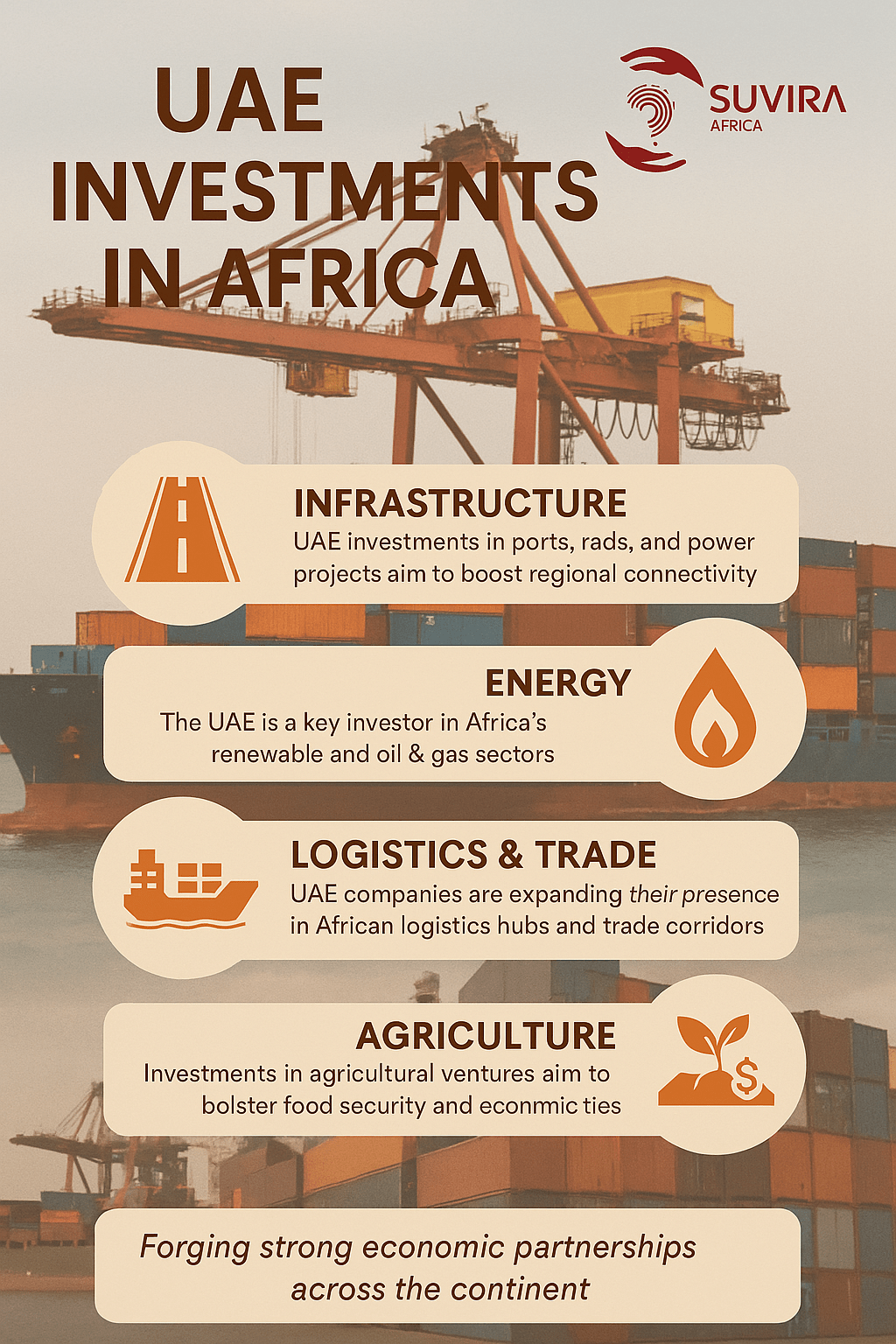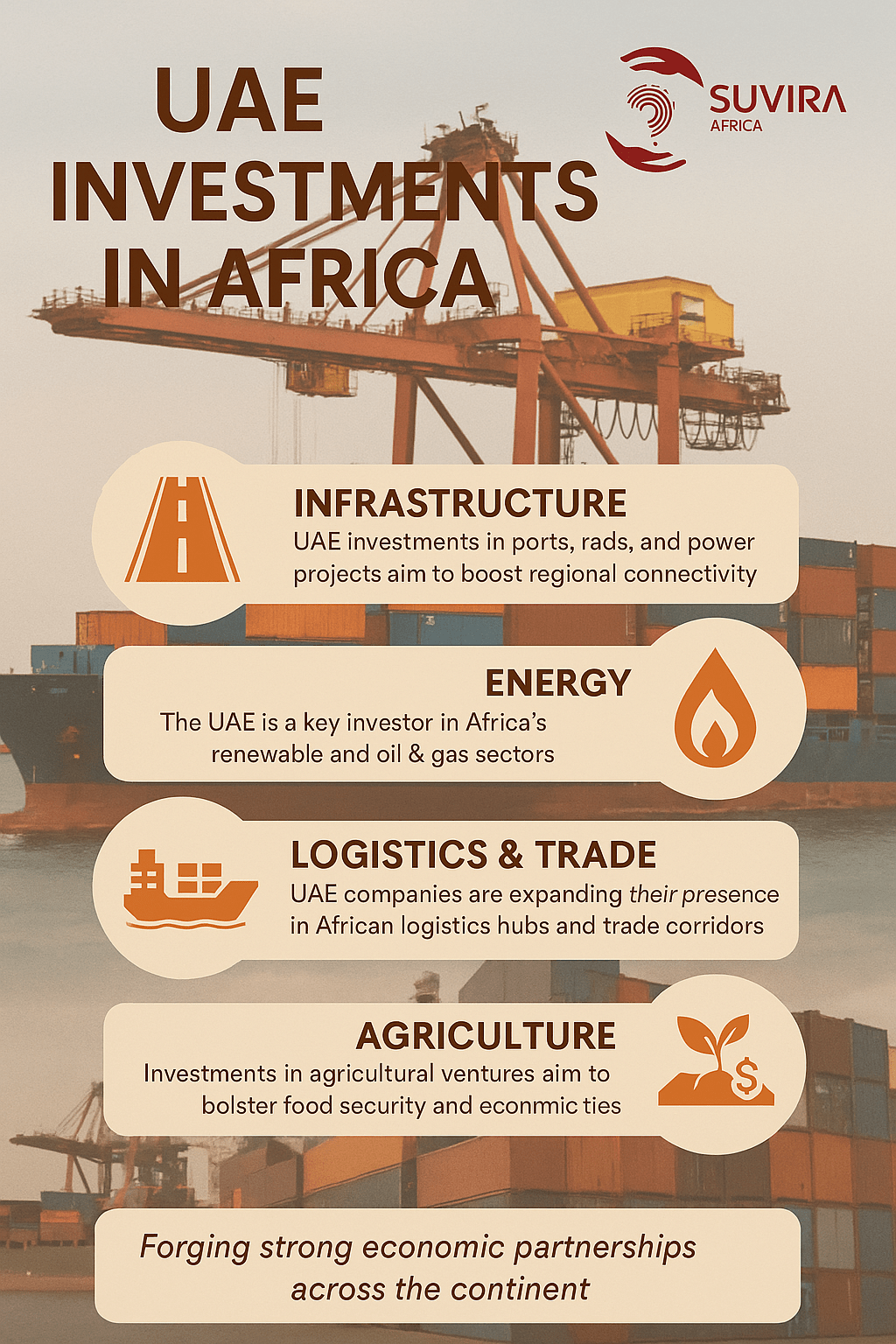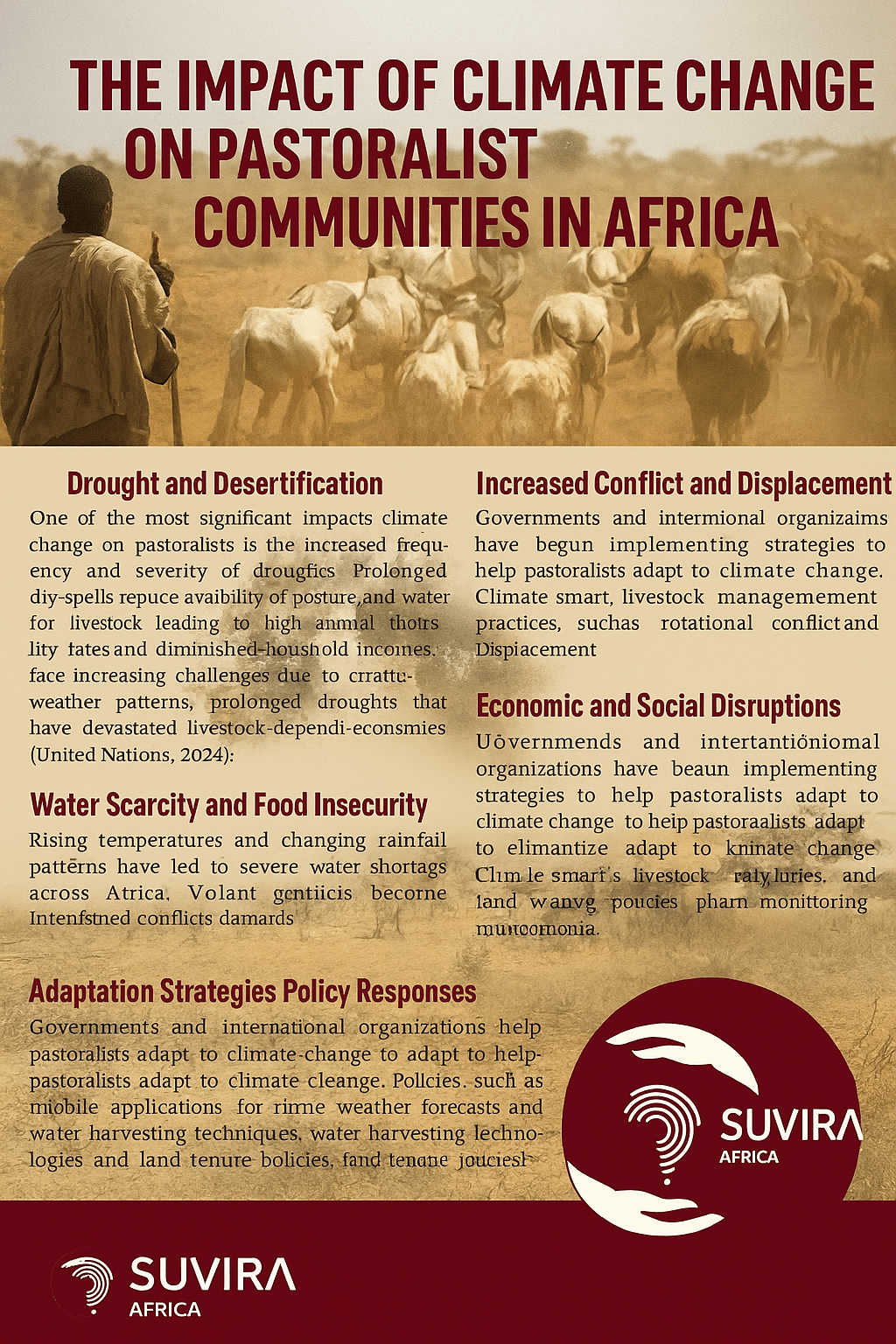The Climate Crisis is Uprooting Africa’s Pastoralist Way of Life
October 18, 2025 6 mins to read
by Charles nyakumbo
Across Africa, climate change is no longer a looming threat—it is a lived reality, especially for pastoralist communities. These groups, who have long depended on seasonal rainfall, livestock rearing, and access to grazing lands, now face unprecedented challenges as the climate grows more unpredictable and unforgiving.
In regions like the Sahel and the Horn of Africa, the once-reliable rhythm of nature has been replaced by prolonged droughts and erratic rainfall. Countries such as Niger, Mali, and Chad are experiencing recurring dry spells that leave pastures barren and water sources depleted. The result? Starving herds, dwindling incomes, and a deepening cycle of poverty. In Kenya, Somalia, and Ethiopia, failed rainy seasons have crippled pastoral economies, pushing communities closer to the brink of food insecurity.
But the environmental crisis is just the beginning. As pastures shrink and water grows scarcer, tensions between pastoralist and farming communities are flaring into violence. In Nigeria, deadly clashes between herders and farmers have become alarmingly frequent, leaving behind broken communities and displaced families. Similar scenes are playing out in Sudan and South Sudan, where resource scarcity exacerbates long-standing ethnic and political rivalries.
The economic fallout is equally severe. Losing livestock—the bedrock of pastoralist livelihoods—means losing access to healthcare, education, and financial stability. Many families are now abandoning their traditional way of life and migrating to urban centers in search of menial jobs. Along with economic loss comes the erosion of indigenous knowledge, language, and culture—intangible legacies that are disappearing under the pressure of climate-induced displacement.
Yet, there is still hope. Governments and development agencies are stepping up with adaptive strategies aimed at building resilience. Climate-smart practices like rotational grazing and drought-resistant fodder production are being promoted. Water harvesting techniques, including boreholes and reservoirs, are helping communities secure their most vital resource. Legal reforms on land tenure are also underway to protect pastoralist access to grazing land and reduce forced displacement.
Technology, too, is proving to be a game-changer. Mobile apps offering real-time weather updates and satellite-based early warning systems are helping herders plan smarter and reduce losses. In Kenya and Ethiopia, digital livestock tracking systems are minimizing conflict by reducing stray herds and monitoring movement.
But adaptation alone is not enough. Policymakers must prioritize long-term investments that support pastoralist communities not just to survive but to thrive. Climate justice demands that those who have contributed least to the problem—like Africa's pastoralists—should not bear the heaviest burden. It's time for stronger international collaboration, community-led planning, and inclusive policies that honor both tradition and innovation.
Africa's pastoralists have endured for centuries through knowledge, resilience, and adaptability. With the right support, they can weather this storm too.



